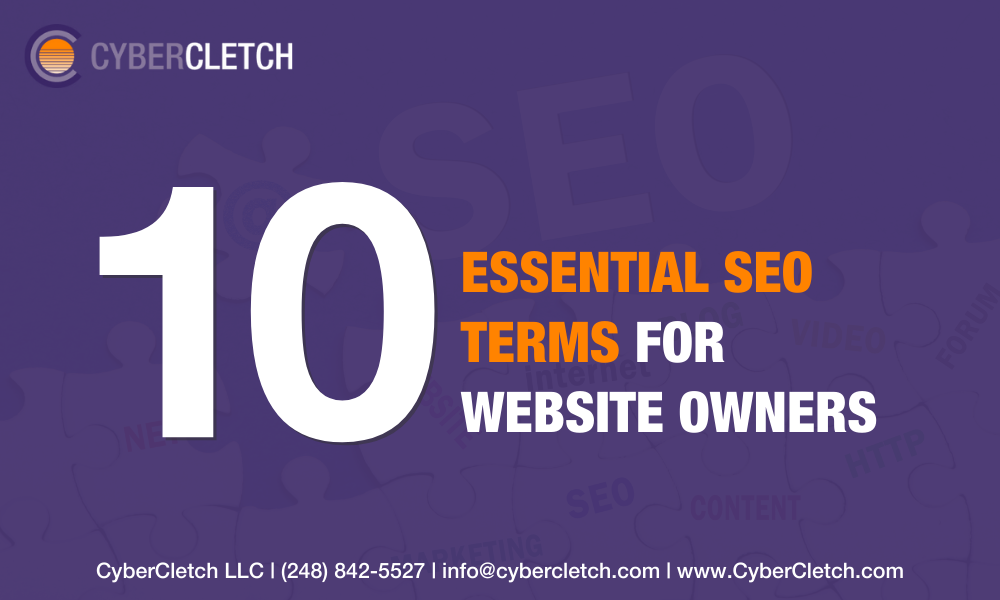As a website owner, you want to ensure your website is easily accessible to your target audience. This is where search engine optimization (SEO) comes in. SEO helps to make your website easier for search engines to understand and suggest to searchers, resulting in more organic traffic. In order to be successful with your website SEO, it’s important to understand some basic SEO terms. Here are the 10 essential SEO terms for website owners:
1) SEO: Search Engine Optimization
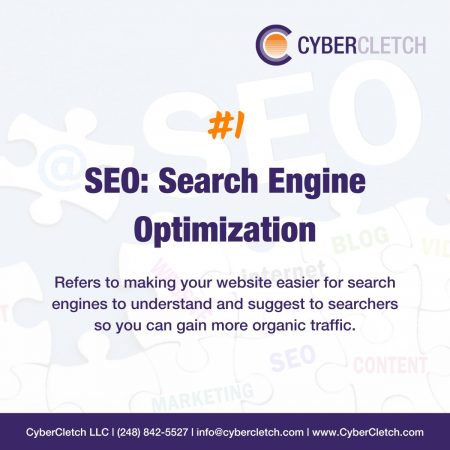
SEO refers to the practice of optimizing your website to make it more visible and discoverable to search engines like Google. The goal is to improve your website’s rankings in search engine results pages (SERPs) for relevant keywords and phrases. This can help drive more organic traffic to your website, which can result in more leads, sales, and revenue.
SEO can involve a wide range of tactics, including keyword research, on-page optimization, link building, and technical SEO. It’s important to have a solid understanding of SEO best practices if you want to improve your website’s visibility in search engines and attract more organic traffic.
2) SERP: Search Engine Results Page

When you enter a query into a search engine like Google, the results that are displayed are called the SERP. The SERP includes a variety of results, including organic results (pages that Google has determined to be relevant to the query based on its algorithm) and paid results (ads that businesses have paid for).
It’s important to understand how the SERP works if you want to improve your website’s visibility in search engines. By analyzing the SERP for relevant keywords and phrases, you can identify opportunities to optimize your website’s content and improve its rankings in search results.
3) SEM: Search Engine Marketing

SEM refers to the practice of using paid advertising to promote your website on search engines. This can include paid search ads (text ads that appear at the top of the SERP) and display ads (visual ads that appear on other websites). SEM can be a highly effective way to drive traffic to your website and increase visibility in search engines.
However, it’s important to note that SEM can be expensive, especially if you’re targeting highly competitive keywords. It’s important to have a solid understanding of SEM best practices if you want to get the most out of your advertising budget.
4) Keywords

Keywords are the words and phrases that people use to search for content on the internet. By understanding the keywords that are relevant to your business or industry, you can optimize your website’s content to make it more visible to search engines.
Keyword research is an essential part of any SEO strategy. By identifying the keywords and phrases that your target audience is searching for, you can create content that addresses their needs and interests. This can help improve your website’s rankings in search results and drive more organic traffic to your site.
5) Keyword Density
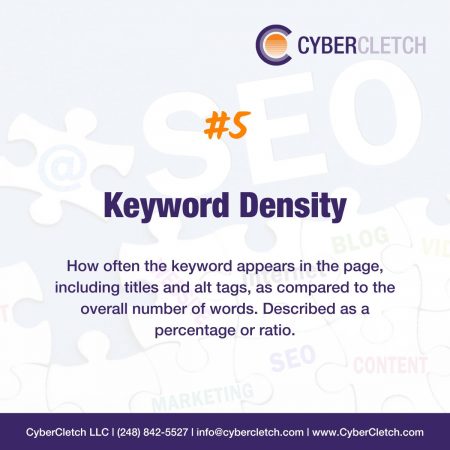
Keyword density refers to the percentage of times a keyword appears on a webpage, compared to the total number of words on the page. While it’s important to include relevant keywords in your content, it’s also important to avoid “keyword stuffing” (using keywords too frequently in an attempt to manipulate search rankings).
There is no one-size-fits-all answer for what the ideal keyword density should be. Generally speaking, it’s a good idea to include keywords in your content where they make sense and to avoid overusing them.
6) Meta Description

A meta description is a brief summary of a webpage’s content that appears in the SERP. The meta description can be up to 160 characters long and is designed to give searchers a sense of what the page is about.
While the meta description does not directly impact search rankings, it can have a significant impact on click-through rates. By crafting compelling and informative meta descriptions, you can encourage more people to click through to your website.
7) Title Tag
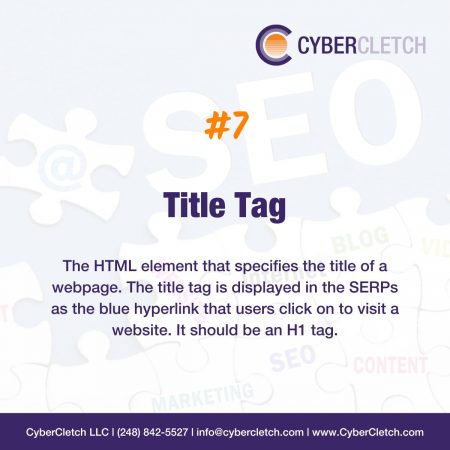
The title tag is an HTML element that specifies the title of a webpage. It is displayed in the SERPs as the blue hyperlink that users click on to visit a website. The title tag should contain the main keyword and be less than 60 characters long.
8) H1, H2, H3* Tags
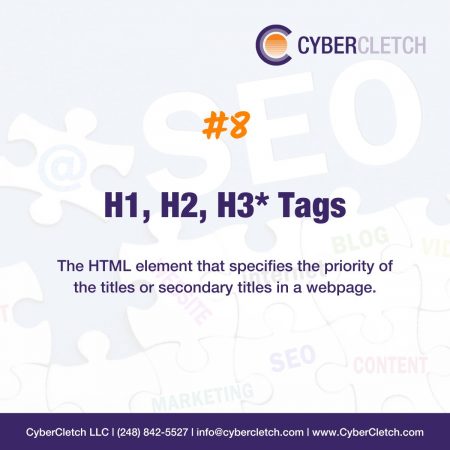
The H1, H2, and H3 tags are HTML elements that specify the priority of the titles or secondary titles in a webpage. The H1 tag should contain the main keyword and be used only once per page. H2 and H3 tags can be used for subheadings and should also contain relevant keywords.
Using header tags not only helps search engines understand the structure of your page but also makes it more readable for users. When a user visits your website, they should be able to quickly and easily find the information they are looking for.
9) Alt Text

Alt text is a brief description of an image on a webpage that is displayed when the image cannot be loaded. It is used to provide context to search engines and is important for accessibility. Alt text should be descriptive and contain relevant keywords.
When you add alt text to your images, it can also help your website appear in Google Images search results. Additionally, including alt text is an important step to make your website more accessible for people with visual impairments who use screen readers.
10) Sitemap

A sitemap is a file that lists all the pages on a website, designed to help search engines navigate and understand the website’s structure. It is an essential tool for ensuring that all of your pages are indexed by search engines and that they understand the relationships between them.
A sitemap should be submitted to search engines through their webmaster tools to ensure that they are aware of all the pages on your website. This is especially important for larger websites with many pages, as it can be difficult for search engines to discover all of them on their own.
In conclusion, understanding these 10 basic SEO terms can help website owners improve their website’s visibility and attract more organic traffic. Implementing these terms correctly can improve your website’s search engine rankings and drive more targeted traffic to your website. So, take some time to research and learn these SEO terms and start improving your website’s SEO today!
If you’re ready to hire a firm for your SEO needs, consider us…. we’ve been performing search engine optimization for our clients since 2002.
CONNECT:SHARE:
